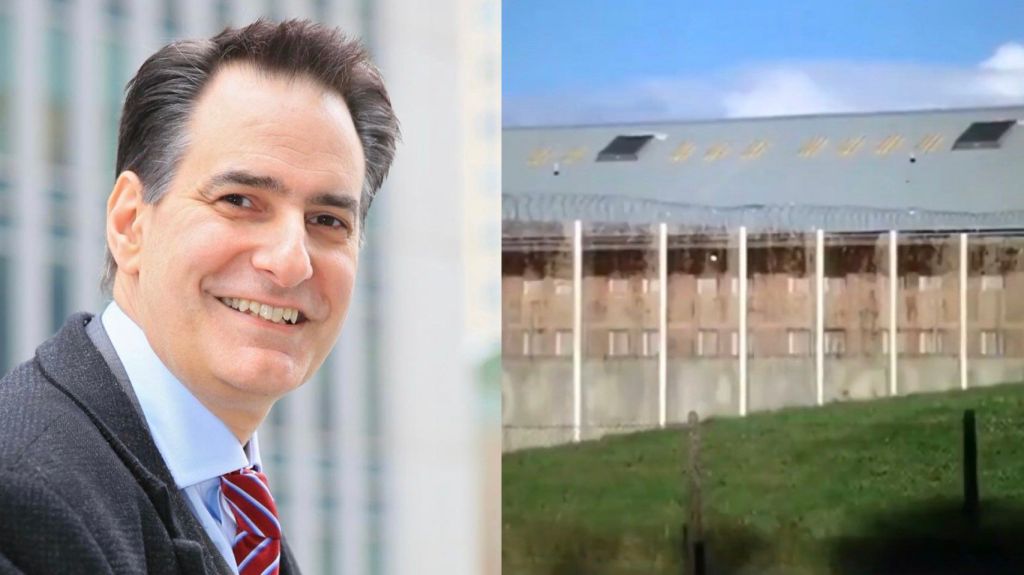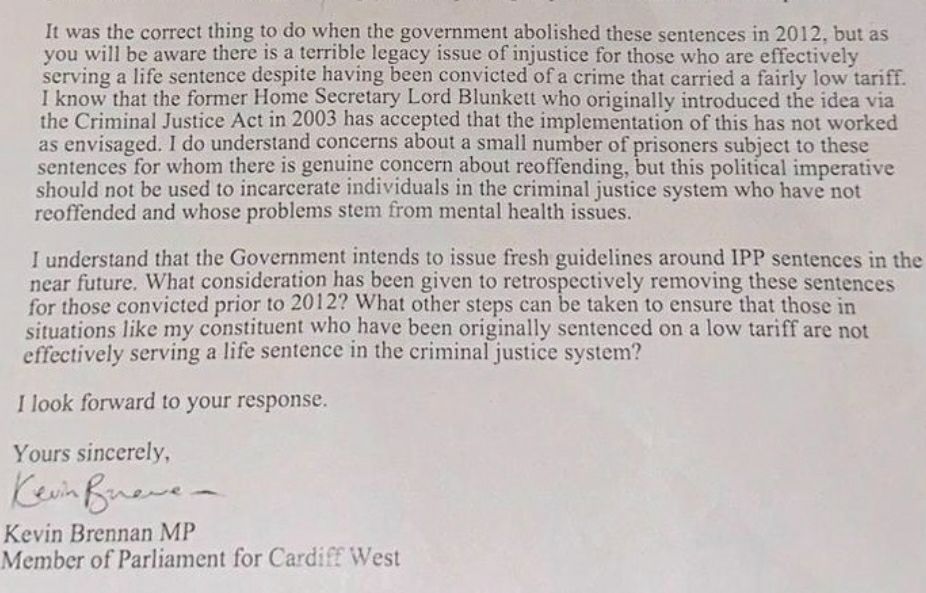IPP sentences were introduced in England and Wales by the New Labour government with the Criminal Justice Act 2003, as it sought to prove it was tough on law and order. They were put in place to detain indefinitely serious offenders who were perceived to be a risk to the public. However, they were also used against offenders who had committed low-level crimes.
Astonishingly, this sentence has led to some people spending 18 years in jail for trying to steal a coat or imprisoned for 11 years for stealing a mobile phone.
In 2012, after widespread condemnation and a ruling by the European court of human rights that such sentences were,
“arbitrary and therefore unlawful”,
IPP terms were abolished by the Conservative government. But the measure was not retrospective, and thousands remain in prison. Sadly, many have taken their own lives.
The former supreme court justice Lord Brown has called IPP sentences:
“the greatest single stain on the justice system”.
When Rt Hon Michael Gove MP was justice secretary, he recommended,
“executive clemency”
for IPP prisoners who had served terms much longer than their tariffs. But he didn’t act on it. Lord Blunkett, the Labour home secretary who introduced the sentences, regrets them, stating:
“I got it wrong.”
And more recently, Dr Alice Edwards, the UN rapporteur for torture has called IPP sentences an
“egregious miscarriage of justice.”
Even the Justice Secretary Rt Hon Alex Chalk KC MP has also called them a stain on the justice system but the Government has so far refused to implement the Justice Committees recommendation to re-sentence all prisoners subject to IPP sentences.
Campaign groups & their families have been fighting to end this tragic miscarriage of justice for more than a decade and now a film posted online by media sensation and CEO of Campaign for Social Justice Peter Stefanovic has ignited a storm by bringing the issue to wider public attention. It has already had over 13 million views online and the public’s reaction to it has been one of shock, outrage, and disbelief.
Despite calls from parliament’s own Justice Select Committee – which said the sentence was “irredeemably flawed” and had caused “acute harm” to those serving them – the government has resisted calls to resentence remaining IPP prisoners, citing concerns for public safety.
But new figures obtained by SKY News through a Freedom of Information (FOI) appear to scupper the Government’s argument against resentencing. The request shows only 83 IPP prisoners who have been released since 2012 have been convicted of a serious further offence (SFO) upon or after their release, including those who may have been released, recalled back to custody and rereleased.
The figure represents just 1.7% of the 4,776 IPP prisoners who have been released since the sentence was abolished, although the Ministry of Justice (MoJ) has said this does not account for those who have been recalled back into custody. The new figures appear to make a mockery of the government’s argument against implementing the primary recommendation of parliament’s own Justice Select Committee for re-sentencing those serving IPP sentences.
The Labour Party is still to clarify its position on this issue.
However, in a letter written by Kevin Brennan MP- now Shadow Minister for Victims and Sentencing and sent to the then Secretary of State for Justice, The Rt Hon Dominic Raab MP in March 2023 he outlines a meeting with Bernadette Emerson, a constituent of his, concerning her husband in prison under an IPP sentence. In the third paragraph, Kevin Brennan MP stated,
“It was the correct thing to do when the government abolished these sentences in 2012”, but as you will be aware there is a terrible legacy issue of injustice for those who are effectively serving a life sentence despite having been convicted of a crime that carried a fairly low tariff”.
Mr Brennan MP continued his letter:
“I know that the former Home Secretary Lord Blunkett who originally introduced the idea via the Criminal Justice Act in 2003 has accepted that the implementation of this has not worked as envisaged. I do understand concerns about a small number of prisoners subject to these sentences for whom there is genuine concern about reoffending, but this political imperative should not be used to incarcerate individuals in the criminal Justice system who have not reoffended and whose problems stem from mental health issues.”
Mr Brennan MP goes on to ask the question,
“What consideration has been given to retrospectively removing these sentences for those convicted prior to 2012?”
What Mr Brennan MP says is both welcome and not surprising given this tragic miscarriage of justice has sadly already taken many lives.
But the position of the Labour Party on this egregious miscarriage of justice is now in question.
On 6th December, during the second reading in the House of Commons of the Victims and Sentencing Bill, Chair of the Justice Committee, Conservative MP Sir Bob Neill, proposed “new clause 1” which would add a resentencing exercise to the Bill in line with the Justice Committees long standing recommendation. Sir Neill’s proposed amendment would help to end this accepted miscarriage of justice.
However, Kevin Brennan MP, surprisingly, given his letter just a few months earlier, opposed the idea, saying:
“Unfortunately, given the impact of the Government’s effective destruction of the criminal justice system, we lack the infrastructure and resources to keep the public safe, should his new clause be implemented immediately. Our priority is, and always must be, the safety of the British public. We are concerned that if new clause 1 were enacted without provisioning for significant improvements in probation and parole, we would potentially significantly increase the risk to the public and to the prisoners themselves.”
However, the new data now obtained by SKY News will add pressure on Labour to get behind the Justice Committee recommendation for resentencing.
HOPE FOR JUSTICE
Hope for justice at last now comes in the form of 2 amendments tabled in the House of Lords to the Victims & Prisoners Bill (161 & 167) by Lord Moylan which are backed by the Lib Dems and Green Party peers, and which have wide cross bench support.
Amendment 167 seeks to implement the Justice Committees recommendation to re-sentence all prisoners subject to IPP sentences.
Amendment 161 would require the state to demonstrate that a prisoner is still a risk to the public rather than, as at present, requiring the prisoner to prove the opposite.
Under the proposed amendment, they would be released unless the Parole Board “is satisfied that it remains necessary and proportionate for the protection of the public from serious harm that they should continue to be confined”.
Amendment is 161 is supported by Lord Blunkett, Baroness Chakrabarti & the former deputy president of the Supreme Court Lord Hope of Craighead. It’s also supported by the Bar Council, representing 17,000 barristers in England and Wales.
This is finally a real opportunity to put right an egregious miscarriage of justice. But for the amendments, backed by both Lib Dem & Green Party peers (as well as many cross benchers) to succeed, Labour front bench support will be needed. Hopefully the new data obtained by SKY News will embolden Labour to do the right thing.
The question now is whether Keir Starmers Labour party will step up for justice or will we have to wait for ITV to produce another compelling drama series like Mr Bates vs The Post Office?





